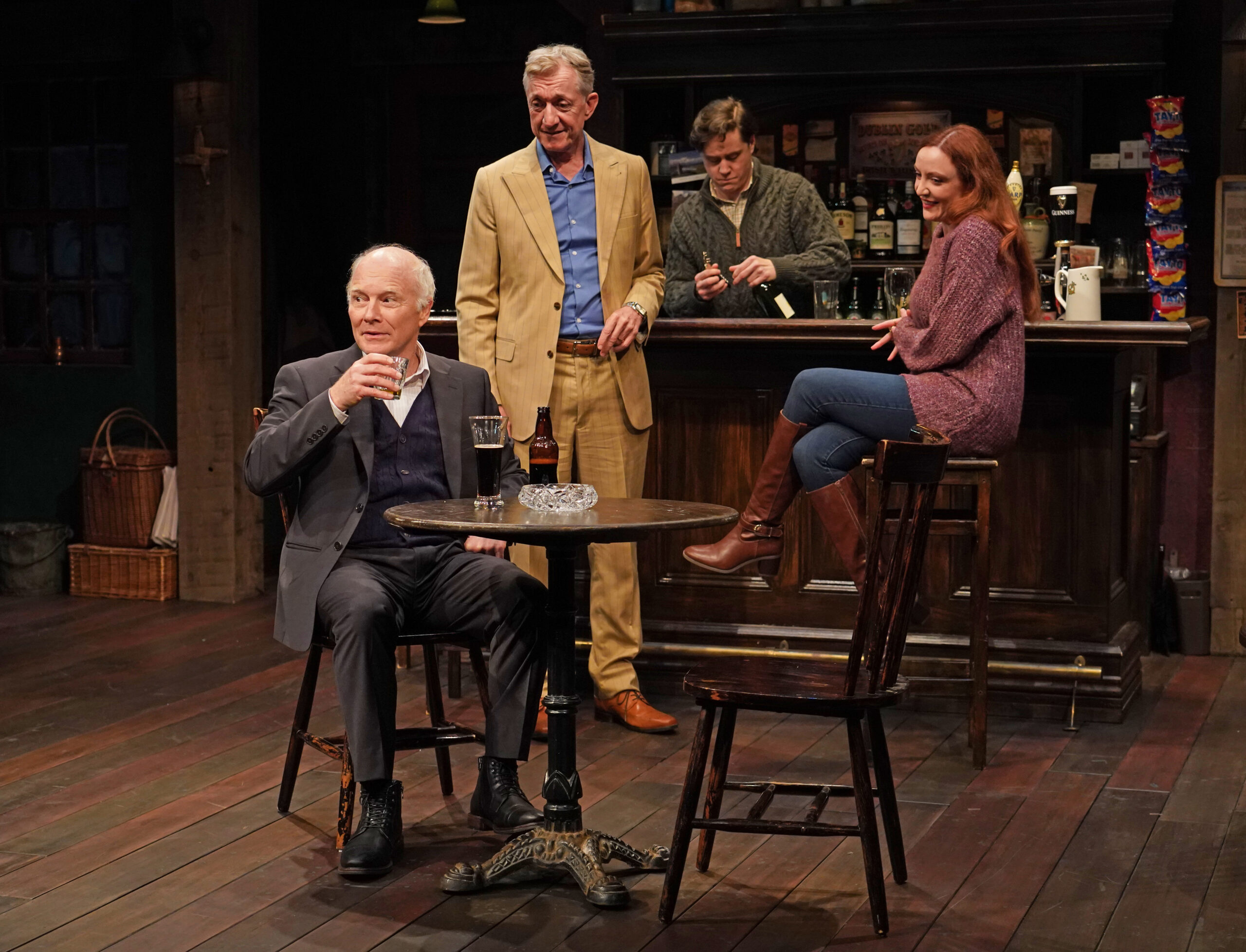‘The Weir’
Irish Repertory Theatre
132 W. 22nd St., Manhattan
Through August 31
A “weir” is a barrier erected across a stream or river to create a dam, and “The Weir,” first staged in 1997 and now playing at the Irish Repertory Theater, is about the barriers between this world and the next, as well as the dams people build between their present and the wounds of the past. The word’s Old English root means both to dam and to defend, but this play, written by Conor McPherson, argues that the past can only be pinned for so long.
The play’s somewhat obscure name has proven no obstacle to its popularity — this is the Irish Rep’s fourth staging since 2013. It runs a tight 100 minutes, and is set entirely in an Irish pub in rural County Leitrim. The wind whistles in the background, and alas the Guinness tap is busted. The Black Stuff, though, is available by the bottle, there is no shortage of whiskey, everyone has a running tab, and last call is more honored in the breach.
The bar belongs to Brendan (Johnny Hopkins) and his two regulars, Jack (Dan Butler) and Jim (John Keating). They banter like some people breathe. Their personalities are as familiar to one another as the shape of the stains on the wooden bar. Jack is a mechanic and owns a garage. Jim, who resembles Kramer from “Seinfeld,” is his assistant. They are all unharried in the way of people who can think of nowhere else they’d rather be.
The play picks up with the arrival of another local, Finbar (Sean Gormley), who is squiring around a young woman from Dublin, Valerie (Sarah Street). Finbar is a prosperous businessman, and Valerie a newcomer to the town. The men take it upon themselves to induct her to the lore of the place and fall into the telling of haunted tales. Restless shades rattle around staircases and gallivant from graves — the Emerald Isle alive with spirits.
The stories are all plausibly deniable, but they linger at the edge of credulity, as if the countryside provides space for what would be scoffed at in the city. Loosened tongues tell tales of old wounds and regrets. Mr. McPherson’s script deftly sketches surfaces and plumbs depths as chit chat unearths memories tied tight to the bone. The weir, Finbar explains, was built “to regulate the water for generating power” — a metaphor for the force of what’s held back.
The play gathers force as it unfolds, as if clearing its throat and moving past small talk to its large themes. All of that Guinness doubles as truth serum, and the pub assumes the contours of a confession booth, albeit one where everyone both speaks and listens. Every life, “The Weir” suggests, is its own kind of ghost story, haunted by sadness and loss. Most terrifying of all are the beckoning specters of who we could have been.
“The Weir” at times calls to mind “The Banshees of Inisherin,” a 2022 film by an Irish-British auteur, Martin McDonagh. That epic, set in 1923 near the end of the Irish Civil War, was nominated for nine Academy Awards, and like “The Weir” largely transpires in a rural pub. “Banshees,” though, plumbs even profounder depths of violence and trauma. Its vision is a dark one, its humor crouched at the gallows. “The Weir,” even at its spookiest, clings to cheer.
“The Weir” is old fashioned — it flirts with kitsch, if never entirely yielding to that temptation — but its heart-wisdom has resonated with audiences. A poll conducted by the Royal National Theater at London confirmed it as one of the 100 best plays of the 20th century. “The Weir” clocked in at 40, tied with Samuel Beckett’s “Endgame” and Eugene O’Neill’s “The Iceman Cometh.” Rarefied — but deserved — company for a dispatch from the heartland.
(Except for the headline, this story has not been edited by PostX News and is published from a syndicated feed.)

